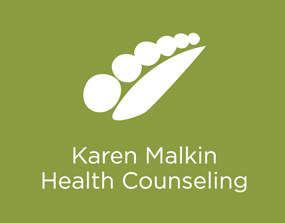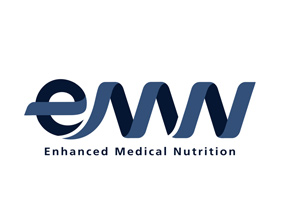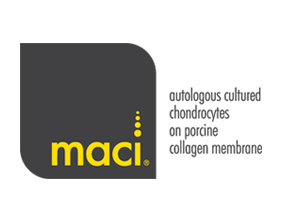Unfortunately, the causes of infertility can be complex and difficult to diagnose. Even worse, the rate of infertility has been rising steadily over the last decade. It’s now estimated that one out of every eight couples will struggle to conceive within a year.
The good news is, there are lots of things you can do to increase your odds of conceiving, even if you’re not sure of the cause. Here’s how fitness, nutrition, and your fertility are connected and what you can do in your daily life to boost fertility and get pregnant faster. As an added bonus, you’ll be preparing your body for a healthy pregnancy at the same time.
Get Support
Infertility issues can be tough on a relationship and even lead to issues with depression and poor self-esteem. Whether you’re just starting your fertility journey or have been trying to conceive for a while, we recommend joining an IVF and fertility support group.
These groups are usually led by a fertility coach who can offer professional advice on diet, supplements, exercise, and other lifestyle strategies to help you conceive. They’ll also help you understand your menstrual and reproductive cycles and how they’re influenced by your lifestyle, too.
But even more importantly, the group will provide a safe place where you can talk about your journey with women who are in a similar situation. That sense of community and understanding is invaluable at such a stressful time.
Increase Your Intake of Antioxidants
Antioxidants deactivate free radicals in the body, which can be harmful to both egg and sperm cells. That means folate, zinc, vitamin C, vitamin E, beta carotene, lutein, and other antioxidants are essential for both male and female fertility.
In fact, an antioxidant-rich diet actually improves sperm quality. And for women, increased antioxidant intake increases the rate of implantation and full-term pregnancy.
Foods that are rich in antioxidants include fresh fruits and vegetables, nuts, and whole grains. Eating a variety of colorful fruits and veggies every day is a great way to increase your intake of a wide range of antioxidants.
Don’t Skip Breakfast
How can eating a healthy breakfast help with fertility issues First, it can reduce the hormonal impacts associated with polycystic ovarian syndrome, or PCOS, which is a leading cause of female infertility.
And for any woman, eating a proper breakfast helps to regulate blood sugar, insulin, and testosterone levels. High levels of insulin and testosterone can contribute to fertility issues. Keeping these levels stabilized supports regular ovulation and reproductive cycles.
Prioritize Healthy Fats
Healthy fats are essential for both male and female fertility as well as overall health. Olive oil, nuts, avocados, fatty fish, and grass-fed meat, poultry, and dairy are all good sources of healthy fats.
On the other hand, trans fats are harmful to ovulation cycles and they’re bad for your health in general. In fact, studies show that diets high in trans-fat can lead to fertility issues for both men and women.
These fats are commonly found in hydrogenated oils, vegetable oil, margarine, baked goods, and processed foods.
Avoid Refined Carbs
Refined carbs aren’t healthy for anyone, and they’re especially problematic for women who have PCOS. They are absorbed very quickly by the body and can cause your blood sugar and insulin level to spike, which can wreak havoc on your hormone levels.
In particular, insulin is similar to the hormones produced by the ovaries, which help eggs mature for fertilization. Having a consistently raised insulin level leads to a decrease in the production of these key fertility hormones because the body thinks it doesn’t need them.
Refined carbs are found in sugary foods and processed grains, like white bread and pasta. On the other hand, whole grains are a great source of slow-burning, complex carbohydrates.
Eat a Fiber-Rich Diet
A fiber-rich diet helps the body stabilize blood sugar and get rid of excess hormones efficiently. It’s also essential for gut health, which plays a key role in healthy hormone balance. Good sources of fiber include beans, fruits, vegetables, and whole grains.
Get Active the Right Way
Here is where fitness comes into the picture. Exercise is beneficial for your overall health, and that includes fertility health. The trick is to not overdo it. Overdoing it with high-intensity exercise can lead to fertility issues for both men and women.
On the other hand, regular, low to moderate-intensity exercise actually has a positive effect on fertility. Try yoga, swimming, walking, jogging, biking, and moderate strength training four or five days a week. And if you plan to increase your activity level dramatically, run it by your doctor first.
Maintain a Healthy Weight
It turns out that weight plays a major role in fertility health for both women and men. Being either underweight or overweight can contribute to infertility issues.
Fat stored in the body influences the female menstrual cycle. Thats why obesity and malnourishment are often associated with a lack of ovulation and missed periods, as well as poor egg health in women. Obesity can also contribute to poor sperm health in men.
To increase your chances of getting pregnant, work with your doctor to optimize your diet and activity level and reach a healthy weight. They can help you set reasonable goals and ensure that you do it in a way that won’t be harmful to your overall health.
The Bottom Line
It’s clear that fitness and nutrition play a key role in fertility health for both men and women. Making healthy lifestyle choices, like eating a whole food diet, exercising regularly, and maintaining a healthy weight can help boost fertility while preparing the body for pregnancy. Plus, you’ll be healthier overall, which is beneficial in so many ways.
Click here for full podcast playlist.














